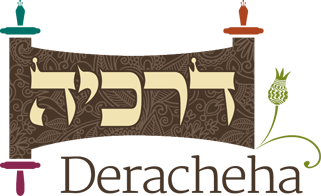Sometimes a quick exchange communicates more effectively, and more personally, than an article.
Sometimes, just seeing that others share our questions can make us feel more connected.
Our posted questions and answers are an opportunity to learn from each other.
Keep in mind that each questioner’s situation may be unique, in ways that affect the halachah. Even the tone of a question can affect the tone of an answer.
- Questions
- Concepts
Question
Category:
Hi! Can I go to an exercise class that is mixed? I am going to wear tznius clothes, but when exercising and jumping your skirt can fly up, and you are in weird positions as well.
- Assign to expert
- Remove from expert
Category:
I grew up charedi, however I now live in a community in Israel where many married women wear short sleeves and leave their hair out in the back. I want to know if this is okay halachically and what I need to be aware of while doing this. Or is this a...
- Assign to expert
- Remove from expert
Category:
Are there any leniencies to the laws of tzniut in public (including dress, hair covering and kol isha) when no Jewish men are pesent? Do the laws of tzniut apply when in the presence of non-Jewish men as well?
- Assign to expert
- Remove from expert
Category:
Hi, I have always felt that Kaballat Shabbat was an experience that recharged me spiritually. Recently though I have not been able to attend because my kids are not allowed to enter the Shul due to Corona guidlines. I wanted to ask if you at Deracheh...
- Assign to expert
- Remove from expert
Category:
My daughter and I just listened to the podcast about the 3 women’s mitzvot. She was wondering if a widower has an above bat mitzvah age daughter living at home, who is obligated to light the Shabbat candles? If men should also light candles, why when...
- Assign to expert
- Remove from expert
Category:
You say being around more at home is a rationale for women's priority in the three mitzvot according to Rav Hai and Rambam. If that's true, and my husband is a stay-at-home dad, does he get priority lighting candles or separating challa?
- Assign to expert
- Remove from expert
Category:
- Assign to expert
- Remove from expert
Category:
- Assign to expert
- Remove from expert
Category:
- Assign to expert
- Remove from expert
Category:
I had trouble with two of the sources here, the mishna and the midrash. You definitely made an effort to discuss the issues, but why quote them at all?
- Assign to expert
- Remove from expert
Category:
In the introduction, you say there's been a change in the transmission of Torah. There's less reliance on custom and community and more on texts. What are some examples of how this affects women?
- Assign to expert
- Remove from expert

